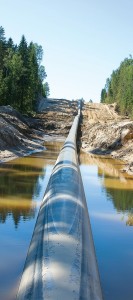Statement of Tyson Slocum, Energy Program Director, Public Citizen
The recent spate of oil train disasters requires a rewrite of safety rules. While the rules unveiled today represent a step forward in some respects, the rules also do not go nearly far enough in two crucial areas. First, the rules allow the very same dangerous oil train cars that have been involved in the recent derailments and explosions to remain on the rails until 2020 in some cases. Second, the rules do nothing to lower the volatility of the crude oil being transported. That means the rule does little to minimize the magnitude of any explosion that occurs after an oil train derails and explodes. Requiring rail cars to become more puncture-resistant and have more effective braking systems is a necessary first step. But the directive does not fully safeguard communities from the threat of oil train infernos.
Legislation introduced by U.S. Sen. Maria Cantwell (D-Wash.) – the Crude-by-Rail Safety Act (S. 859) – represents the apex of what a regulatory response to the threat of oil train disasters should be. It should set aggressive but fair standards for new and existing cars and immediately ban the use of any car without increased puncture resistance, stronger flame retardants and enhanced braking systems. Cantwell’s legislation goes above and beyond today’s proposed rule by setting a federal oil volatility standard and by requiring that community officials be notified before oil trains travel through their neighborhoods.
America’s crude-by-rail crisis stems from the rapid expansion of oil production in North Dakota’s Bakken Shale, which lacks adequate pipeline capacity to move the 1.2 million barrels of oil produced there every day. As a result, 70 percent of the oil is shipped on railroads that are not designed to accommodate these treacherous loads. Bakken crude is extremely volatile, making it more prone to combustion upon a puncture-inducing derailment.
A small step like today’s DOT rule does not do enough to address the real oil train safety crisis.



